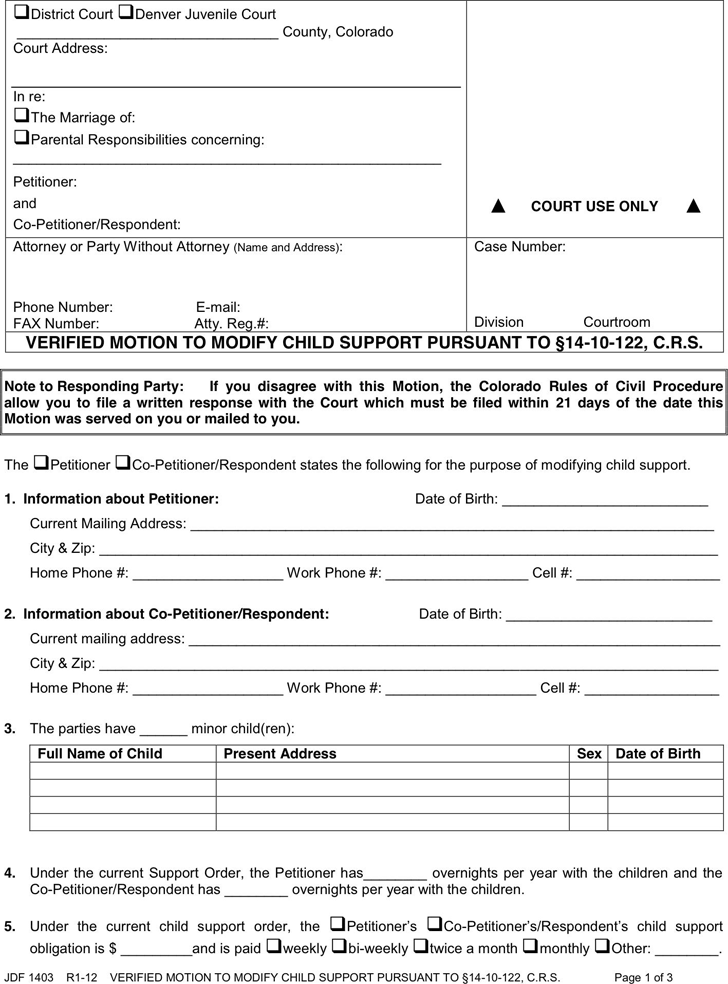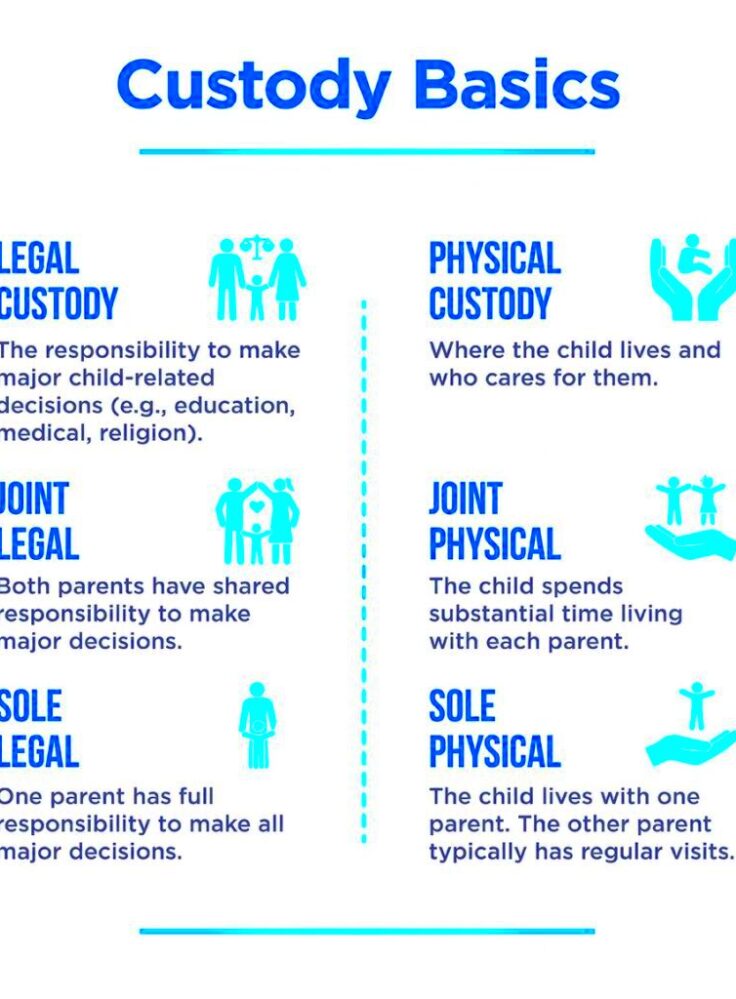Colorado’s Child Custody Law Revisions and Enforcement
In Colorado, child custody laws seek to guarantee the welfare of children while taking into account the rights of parents. Such laws regulate custody decisions and responsibility arising from them. It is crucial for parents to have knowledge about these laws in order to handle custody matters effectively. Therefore, this article examines Colorado’s approach to child custody closely.
In Colorado there are two major forms of custody: legal custody and physical custody. Legal custody means having a say in important decisions concerning the child’s upbringing, including education as well as healthcare decisions. On the other hand, physical custody pertains to where the child lives and who takes care of him/her on a daily basis. The state promotes shared parenting, with both parents being urged to participate in their child’s life.
Key Revisions in Child Custody Laws

Recent revisions to Colorado’s child custody laws reflect evolving societal norms and a deeper understanding of child development. These changes include:
- Emphasis on Joint Custody: The state promotes joint custody as a preferred arrangement, allowing both parents to play significant roles in their children’s lives.
- Best Interests of the Child Standard: All custody decisions are based on what is in the best interests of the child, considering factors like emotional support and stability.
- Expanded Definition of Parenting Time: The laws now provide clearer guidelines on parenting time, ensuring that both parents have ample opportunities to spend time with their children.
- Focus on Domestic Violence: Revisions address concerns related to domestic violence, ensuring that the safety of the child is a top priority.
Types of Child Custody Arrangements

Parents are able to make better decisions if they understand various kinds of custody settlements. Major categories are:
| Type of Custody | Description |
|---|---|
| Legal Custody | The right to make important decisions about the child’s life, including education, healthcare, and religion. |
| Physical Custody | Determines where the child will live and who will provide day-to-day care. |
| Joint Custody | Both parents share legal and/or physical custody, promoting equal involvement in the child’s life. |
| Sole Custody | One parent has both legal and physical custody, typically granted when the other parent is unfit. |
Different families have different circumstances that lead to various arrangements. Custody arrangements that benefit the children are encouraged by Colorado’s encouragement of parents collaborating.
Factors Influencing Custody Decisions

In making child custody choices around Colorado, a general method is utilized by courts. Various elements are taken into account so that the plan may meet the needs of the kid. Parents need to be aware of these matters since they can greatly affect how a custody hearing ends.
The court take into consideration several essential elements such as:
- The Child’s Relationship with Each Parent: The quality of the relationship and the emotional bonds the child shares with each parent play a significant role.
- The Child’s Preferences: Depending on their age and maturity, a child’s wishes may be taken into account. Courts often listen to what the child wants.
- Each Parent’s Ability to Provide for the Child: This includes not just financial support but also emotional and psychological stability.
- The Stability of Each Parent’s Home Environment: A stable home, free from conflict, is essential for a child’s well-being.
- Parental Cooperation: The willingness of parents to work together and facilitate a relationship between the child and the other parent is critical.
Parents who comprehend these aspects can get ready for custody hearings thus presenting their cases in a much more efficient manner.
Enforcement of Custody Orders
A custodial decree upon creation, is a document that has to be respected as if it were a law. However, implementation of custody commands may not always be easy. The parents must follow what the magistrate has ordered them to do and appreciate the knowledge of getting that done.
When a parental figure does not comply with an established custody directive, multiple measures may be put in place:
- Communication: It’s often best to start with open communication. Discussing the issue can sometimes resolve misunderstandings.
- Documentation: Keep a detailed record of any violations, including dates, times, and specific instances of non-compliance.
- File a Motion: If communication fails, the affected parent can file a motion with the court to enforce the order. This may lead to a court hearing.
- Potential Consequences: Courts can impose various consequences for non-compliance, including modifying custody arrangements or even imposing fines.
Parent can get their custody orders respected and carried out by knowing how the enforcement process works.
Modification of Custody Agreements
There are times when one can completely shatter the pre-established rhythm of life and break into an unpredictable mode. But as per the laws of Colorado parents can always seek to modify their custody arrangements so that they would be in a better position to raise their children more effectively.
Reasons why parents seek for modification are some of the following:
- Changes in the Child’s Needs: As children grow, their needs may change. A custody arrangement that worked when a child was younger may no longer be suitable.
- Changes in Parental Circumstances: This could include a parent moving to a new location, changing jobs, or experiencing changes in their health.
- Concerns About Safety: If one parent believes the child is in an unsafe situation with the other parent, they can seek a modification.
Before carrying out any changes, one must file a motion with court that requests for a modification. The court subsequently examines such a request on child’s welfare basis, taking into account similar factors which were taken into consideration during initial custody agreements in regards to that particular child.
Role of Mediation in Custody Cases
In most cases, mediation is a preferred way of solving custody disputes in Colorado as it allows parents to work together to find solutions that best suit their child’s needs and has a less confrontational approach compared to conventional court proceedings thus making it less stressful for both parents and children.
A neutral third party mediates the discussions between parents during mediation. The mediation process generally works as follows:
- Setting the Agenda: Both parents discuss their concerns and priorities regarding custody, allowing them to outline what they hope to achieve.
- Open Communication: The mediator encourages open dialogue, helping parents express their feelings and needs without escalating conflict.
- Exploring Solutions: Parents are guided to brainstorm and explore various custody arrangements that might work for both parties.
- Drafting an Agreement: If parents reach a consensus, the mediator helps draft a written agreement that can be submitted to the court for approval.
Mediation is advantageous as a result of the fact that it results in personalized and flexible solutions. Moreover, parents are given the power to take charge of decision-making instead of leaving it to courts.
Resources for Parents Navigating Custody Issues
Dealing with child custody matters can be heart-breaking, yet a lot of materials exist to assist parents along the route. Legal aid or therapy, these resources render much-needed support and direction.
The following sources might come in handy:
- Colorado Judicial Branch: The official website offers information about child custody laws, forms, and resources.
- Legal Aid Organizations: Nonprofit organizations, such as Colorado Legal Services, can provide free or low-cost legal assistance to parents.
- Mediation Services: Many local agencies offer mediation services specifically for family law matters.
- Support Groups: Joining support groups can provide emotional support and practical advice from other parents facing similar challenges.
- Therapy and Counseling: Professional counselors can help both parents and children cope with the emotional impact of custody disputes.
Everyone in the group may find that by using these resources throughout the project, the process becomes easier and much more pleasant.
FAQs About Colorado’s Child Custody Laws
Among the numerous questions asked by parents about Colorado’s child custody laws are the following. Some of these laws can clarify various issues and alleviate anxiety regarding custody. The following are FAQs:
| Question | Answer |
|---|---|
| What is the difference between legal and physical custody? | Legal custody involves making decisions about a child’s upbringing, while physical custody pertains to where the child lives. |
| How is child custody determined? | Custody is determined based on the best interests of the child, considering factors like relationships with parents and stability of the home. |
| Can custody arrangements be changed? | Yes, custody arrangements can be modified if there are significant changes in circumstances affecting the child’s welfare. |
| Do children have a say in custody decisions? | Children’s preferences may be considered, particularly if they are mature enough to express their wishes. |
| Is mediation mandatory in custody cases? | Mediation is not mandatory but is highly encouraged in Colorado to help parents reach agreements amicably. |
This FAQs serve to clear out some of the common ambiguities that parents experience about child custody regulation in Colorado.
Conclusion on Child Custody in Colorado
If you are traversing the intricacies of child custody in Colorado, it can be a daunting task but with knowledge of regulations as well as resources at one’s disposal, it could become simpler. It is important for parents to always prioritize their children’s welfare and cooperate either through mediation or by talking things out openly instead. The legal system in Colorado concentrates on co-parenting thereby demonstrating an up-to-date comprehension of child growth and family interactions.
When a family experiences certain changes, it is important to understand ways to modify and enforce custody arrangements. The help that parents require may be gotten from various sources such as legal assistance organisations, mediation and support groups. Parents who strive for cooperation and their children’s interests will find themselves sailing through the complex world of custody making it a safe place for them to grow.


